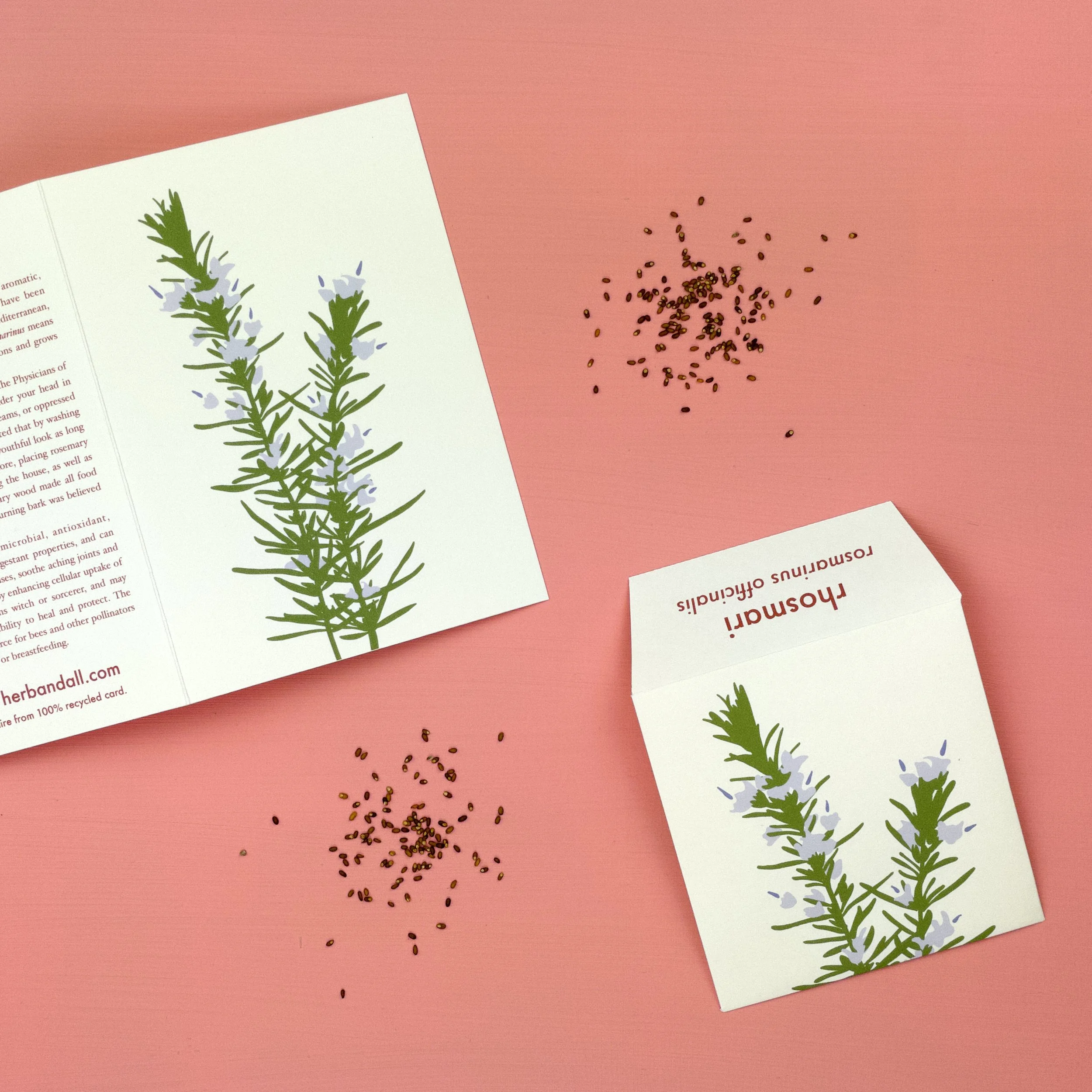ysbwynydd, rhosmari
rosemary
rosmarinus officinalis
Perlysiau Cymraeg
Welsh Herbs
Whether for their spiritual and cultural significance, culinary delights or restorative powers, herbs have an important role in ancient and contemporary Wales. The famed Physicians of Myddfai were a group of Medieval medicine men, who administered botanic concoctions to Welsh royalty whose herbal recipes and prescriptions are documented in the 14th century Red Book of Hergest. In Welsh folklore, herbs feature in many aspects of daily life as well as being imbued with magical powers, often associated with protection from unwanted spirits and attracting suitors. Below are simple ideas for how to eat, drink and enjoy the popular plants rhosmari (rosemary), teim (thyme) and melyn mair (pot marigold).
melyn mair, swyn-ystres
pot marigold
calendula officinalis
gryw, grywlys, teim
thyme
thymus vulgaris
Teim for Tea
Rhosmari and teim both make aromatic herbal teas which are not only flavoursome but also help to relieve cough and cold symptoms and boost the immune system. Teim is one of the best herbs for a chesty cough and sore throat. Pick a few sprigs and run your fingers down the stems to remove the leaves. Finely chop, place in a mug, add boiling water and cover with a saucer to trap the fragrant oils. Use between 1-3 teaspoons of leaves depending on desired strength. Make sure to inhale deeply through your nose as you drink to help clear blocked sinuses.
Cawl Cymraeg
A national dish of Wales, ‘cawl’ is Welsh for soup or broth, and has been prepared since at least the Middle Ages, usually consisting of meat and vegetables like leeks, potatoes, carrots and cabbage. Historically eaten in South-West Wales during winter, northern residents have a similar dish called ‘lobscows’. Cawl recipes can be meaty or vegan, and herbs like rhosmari and teim are popular ingredients. Known as ‘poor man’s saffron’ melyn mair petals (fresh or dried) can be stirred into the broth to give it a soft golden hue and delicate flavour.
Rhosmari Bath
Bath infusions are so easy to do and transform the bathing experience. Many herbs make relaxing and invigorating bath infusions; rhosmari is especially good for aching joints, muscles and general vigour. Simply snip fresh sprigs about three inches long, place in the bath and let the hot water flow over them as the tub fills. Use as much rosemary as you like and give the sprigs a gentle squeeze to release the oils. You can also use dry rosemary by filling a small muslin bag and hanging below the tap as the water pours.











